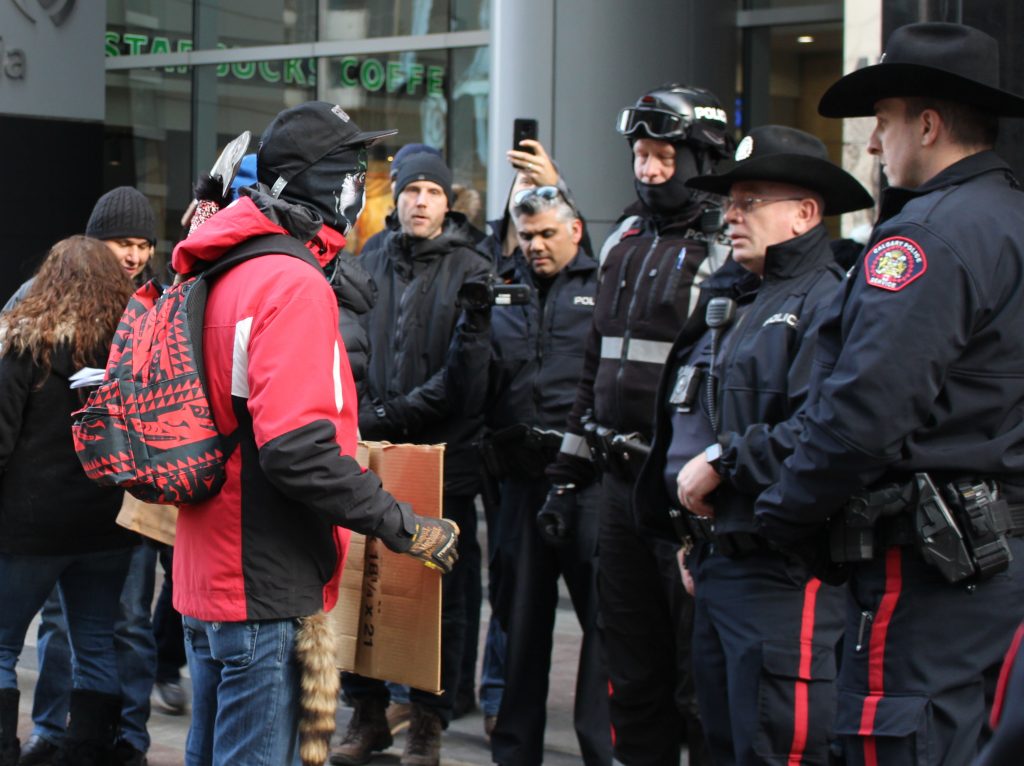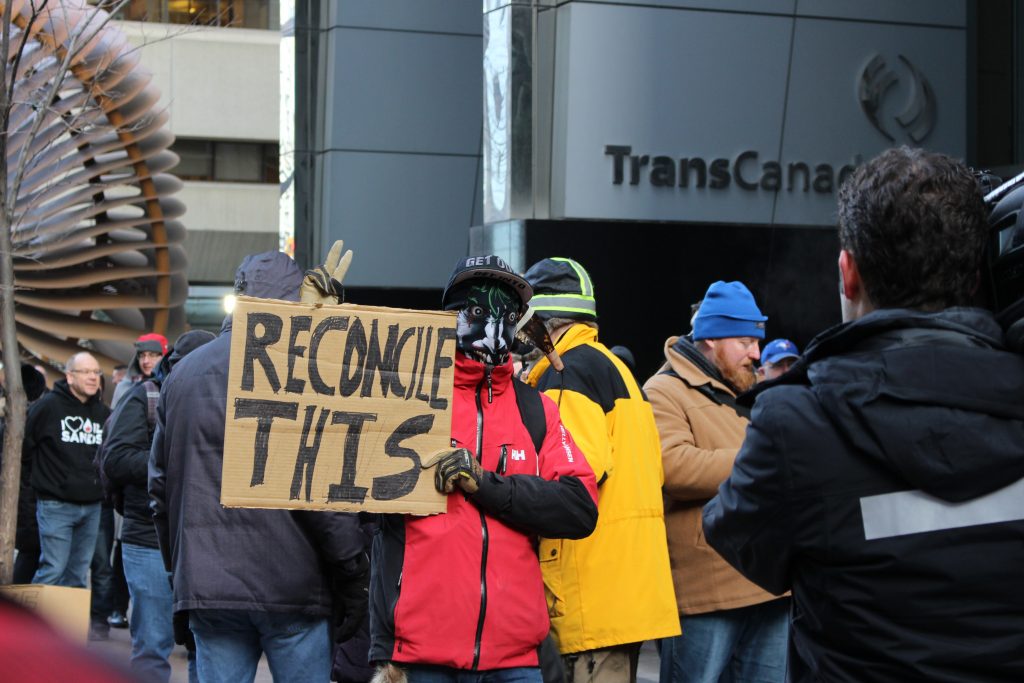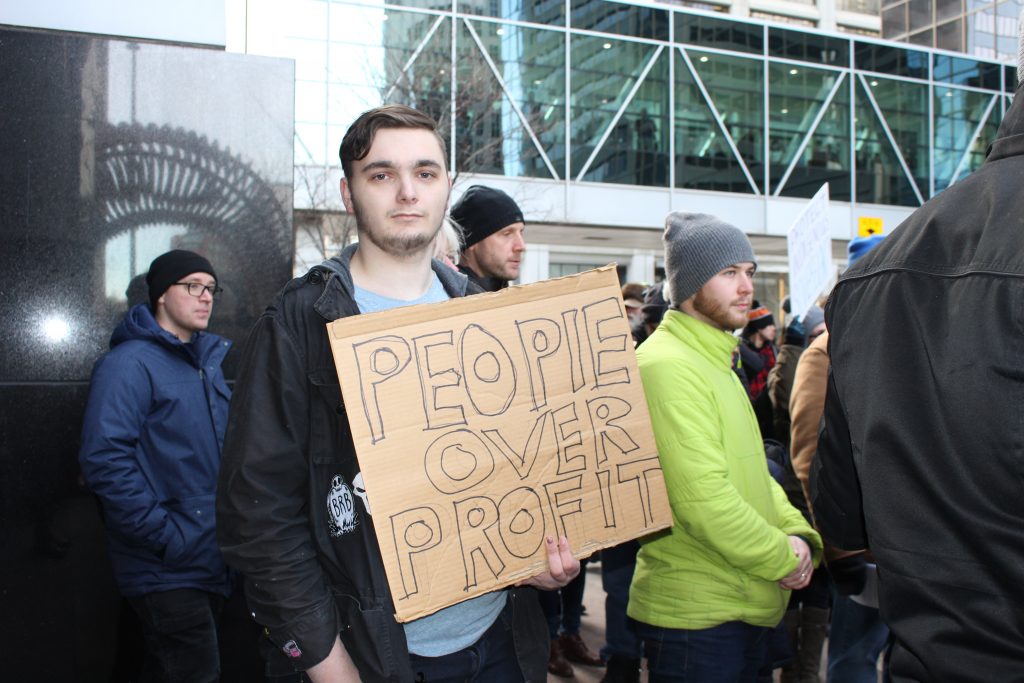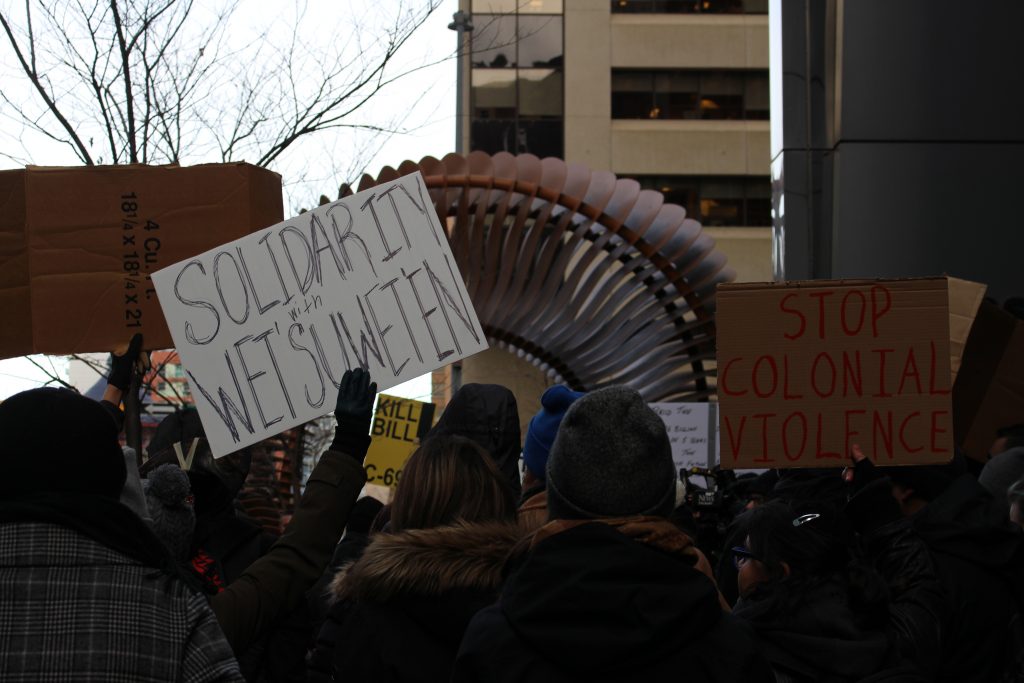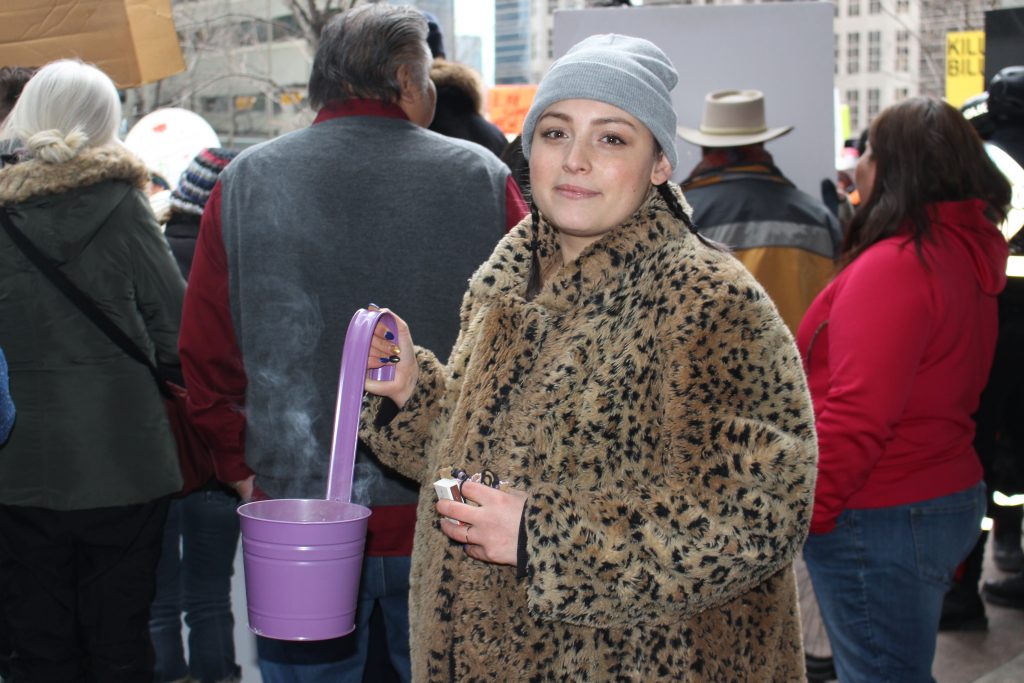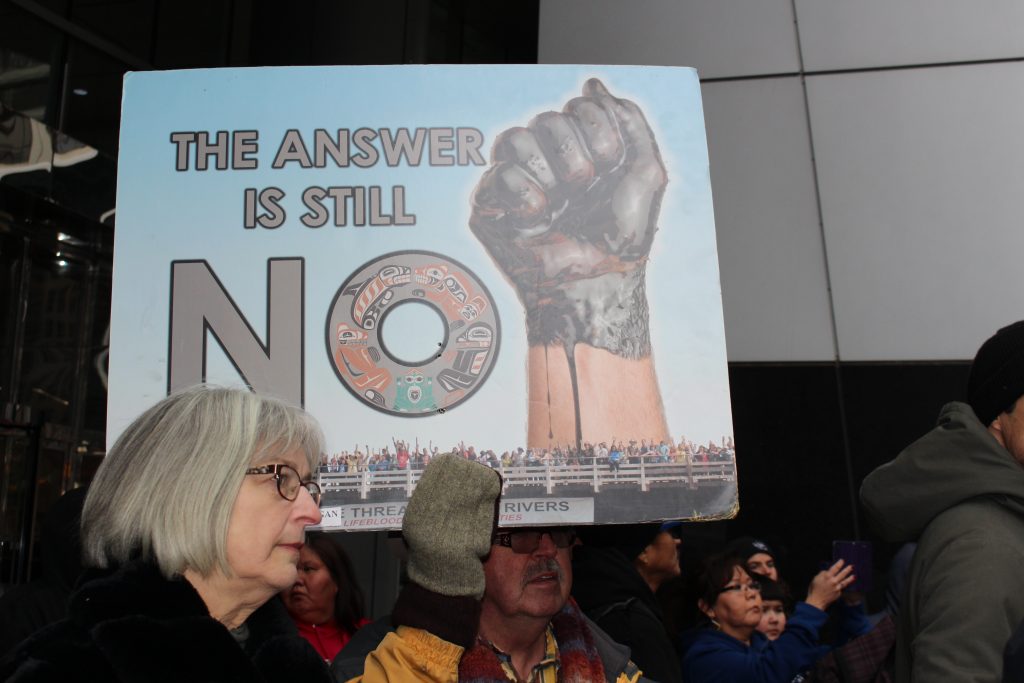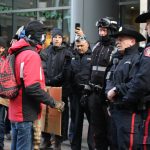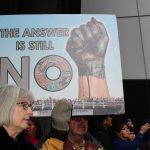Divide over pipeline spills onto street
Andi Endruhn and Jenna Tytgat, Layout Editor and Staff Writer
Outside the TransCanada tower on Jan. 8, as puffs of breath rose into the air, peaceful protesters in support of the Wet’suwet’en Nation in B.C. knelt on the cold concrete, as pro-pipeline protestors sang “O Canada.”
Members of the Wet’suwet’en have been denying workers of Coastal GasLink, a subsidiary of Calgary based company TransCanada, access to the area. They are stating that they do not have the permission of the ‘hereditary leaders’.
On Jan. 7, the RCMP arrested 14 members of the Gidumt’en Clan, of the Wet’suwet’en First Nation, saying that they had violated the terms of an interim court injunction requiring the removal of a blockade along a forest service road issued in December. The Wet’suwet’en have prevented pipeline crews from entering the area.
The arrests, which the RCMP say occured after a several hour long meeting at which the elders and pipeline company failed to reach a resolution, have gone viral. Images depict armed RCMP members arresting members of the Wet’suwet’en Nation in -20 °C, lying face down in the snow.
The blockade that had been maintained along the forestry road marked the entrance into Wet’suwet’en, which is yet unceded, and recognized as sovereign territory by Canadian law as per the Delgamuukw-Gisday’wa case in 1997. It states that the Wet’suwet’en people, under their hereditary leaders, still held the rights to 22,000 km2 of Northern B.C.
The demonstration — one of many events hosted across the country on the 8th, in response to a press release from the Wet’suwet’en First Nation asking “all people of conscience” to act in a day of international solidarity.
In Calgary, perhaps more than any other when it comes to pipelines, protestors met counter protesters, with a heavy police presence rounding out the scene.
Demonstrators occupied the public sidewalk with signs and various chants of ‘Solidarity, Consent’, and ‘Kill that pipe’. They sang, played drums and burned sage. Pro-pipeline advocates countered with their own chants of ‘Build that pipe,’ banners and signs.
Judy Johnson stood near the back of the pro-pipeline group that had gathered with a sign reading “Foreign-funded, eco-shaming radicals NOT welcome”. She said that she does not believe the pipeline route should be moved.
“I’m here because of my concern that people don’t understand the necessity of these pipelines,” she said. “Where do they think the money comes from? It transfers from Ottawa.”
“The pipeline is also going to feed towns along the way, they’ll have a stable source of gas to heat their homes.”
Amongst the shouts and chants, Abbey Shaw walked through the crowd in a heavy patterned coat carrying a purple bucket with burning sage.
“The sage is meant to cleanse and purify, so [I’ve] basically gone through and smudged anyone who has come to the march,” she said. “[People] can wave the smoke over their head and it helps to bring peace [and] bring everybody here together.”
Shaw expressed her concerns about the pipeline project regarding consent.
“The whole world is talking about consent right now, in every area, and this is a live and living colour example of how we need to respect consent,” she said.
“I think that we are at a time where people are forgetting that this is about lives and that there is no situation where financial security trumps someone’s life.”
The Calgary demonstration was one of the smaller examples of solidarity in Canada, yet there was a division of Calgarians that was clearly displayed.
Michelle Robinson, an organizer for the Calgary event spoke with CBC Calgary saying that many people “have an assumption that [Indigenous people] are all anti-pipeline when some of us are pro-pipeline, but we are all anti-violence and I would think all Canadians can get behind that message.”
- Protestors were met by counter-protestors and a heavy police presence outside the TransCanada tower in downtown Calgary. Photo by Jenna Tytgat
- Efforts at reconciliation by the Canadian government were frequently brought to contrast violence against Indigenous people by the protestors. Photo by Jenna Tytgat.
- Protest organizer Michelle Robinson noted in an interview with CBC Calgary that the protest was not entirely anti-pipeline, but rather one of anti-violence sentiment. Photo by Jenna Tytgat
- Protestor Liam Skidmore was one of many who displayed signs boasting slogans of solidarity and anti-pipeline statements during the Wet’suwet’en solidarity protest Jan. 8, 2019 in Downtown Calgary. Photo by Jenna Tytgat
- Protestors occupied the sidewalk outside the TransCanada tower Jan. 8, 2019, chanting and playing drums in the name of solidarity with the Wet’suwet’en Nation. Photo by Jenna Tytgat
- Abbey Shaw burns Sage at the Wet’suwet’en solidarity protest, January 8, 2019. Photo by Jenna Tytgat
- Chants of “Kill that pipe” and “Solidarity, consent” rang out from protestors outside the TransCanada tower Jan. 8, 2019. Photo by Jenna Tytgat

